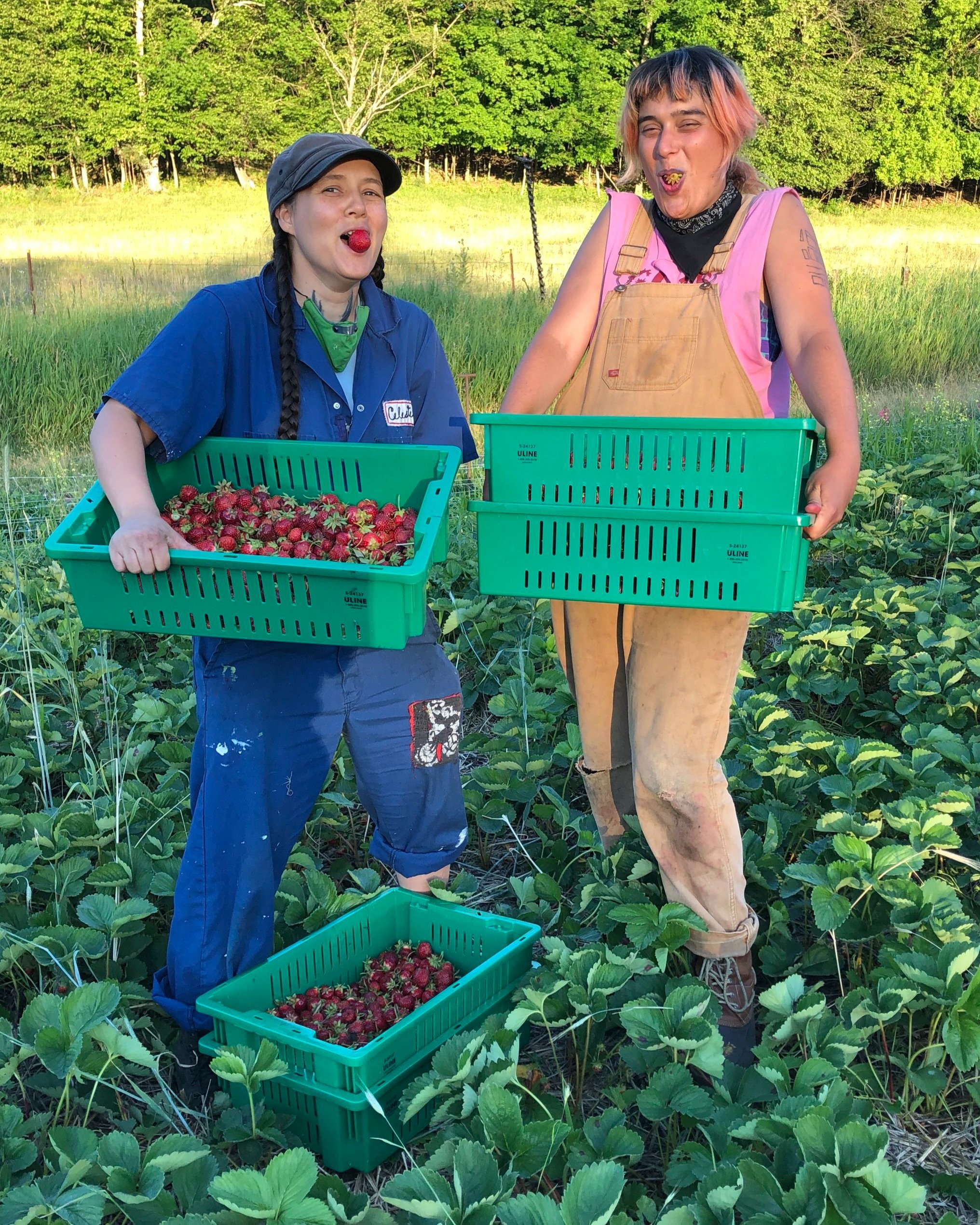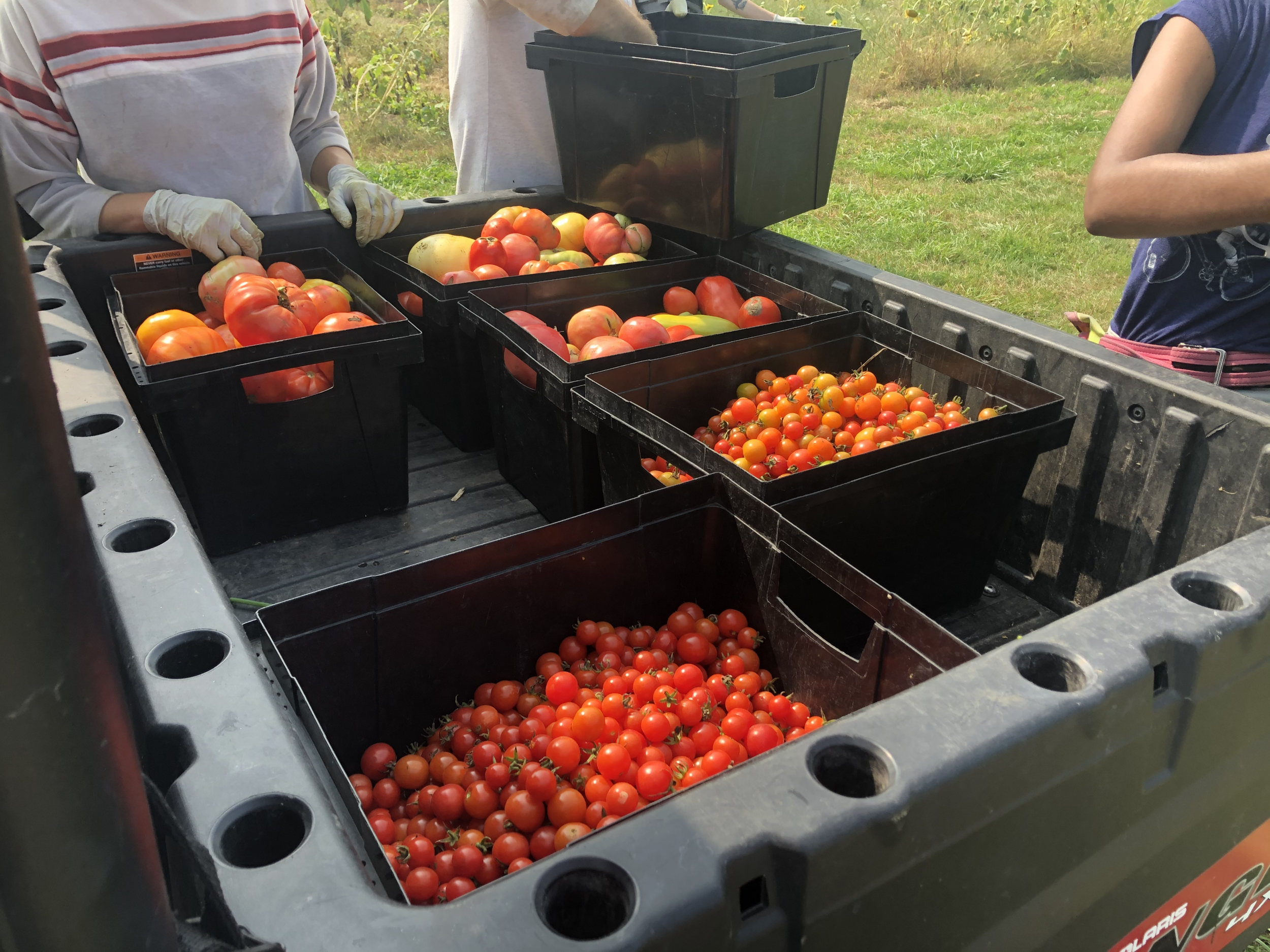
Foodshare
Increasing Access, Reducing Waste

Fresh Berries
We received boxes of these beautiful berries from Trader Joe’s. As overstock items, they couldn’t be sold in the store. Unfortunately, many businesses throw away perfectly good food such as this.
The Problem
Access to food is a basic human necessity. We at NCFA believe that everyone should be empowered to choose the foods they want to eat. However, obtaining healthy, sustainable, and culturally relevant foods can be difficult for people facing systemic oppressions.
30-40
Percent of our food is wasted
133
Billion pounds of food goes into the landfill annually
41
Million Americans Face Hunger
Meanwhile, food waste is a huge problem in the US. It is estimated that between 30 to 40 percent of our food ends up in a landfill, or about 133 billion pounds annually (source). With 41 million Americans facing hunger (source), this is an unconscionable misuse of resources.
Our Impact
Every weekday (and some weekends!), we pick up surplus food from co-ops, grocery stores, and distribution centers across the Twin Cities area. All of this food would otherwise be thrown away, either because it’s overstocked or visually imperfect. Most of it is fresh produce, which is often less available to people facing food insecurity. Food donors in 2021 include Trader Joe’s, United Noodle, St. Vincent de Paul, Seward Co-op Friendship Store, and more.

Gleaning
Past NCFA workers gleaning strawberries at Philadelphia Community Farm in Osceola, Wisconsin.
In 2020, we started shifting more focus to local food recovery by launching a gleaning program. Gleaning is the act of harvesting fresh produce that would otherwise go to waste at orchards, gardens, and farms. This is high-quality food that would rot in the field if not for outside efforts—possibly due to constraints on time, storage, or budget. Gleaning partners in 2021 include Dream of Wild Health, Philadelphia Community Farm, and the Saint Paul Farmers’ Market.
We also began purchasing food from local farmers in 2020, focusing on BIPOC (Black, Indigenous, and people of color)-run farms. By doing so, we support the local food system, provide additional funds to underrepresented farmers, and select specific culturally-appropriate foods for our foodshare program. As always, all food is given away completely free-of-charge.
For a full list of recent food donors, farms that we purchase from, and other collaborations, see our partners page.
5
Days a week, we deliver food to charities that serve people in need
6-8
Thousand pounds of food saved every week
40
Organizations served in the Twin cities metro area
To ensure that we serve the people experiencing the most disadvantages in our society, we partner with local nonprofit organizations such as soup kitchens, homeless shelters, and food shelves. Our work provides them with reliable access to fresh foods. 2021 food recipients include Grace Place Assisted Living, Minnesota Central Kitchen, VEAP, and Groveland Food Shelf.
For a full list of recent recipients, see our partners page.
Produce For The People
Partnering with Twin Cities Farmer’s Markets

Since 2020, St. Paul Farmers’ Market vendors have been helping their neighbors and preventing food waste with the Produce for the People program. Vendors sell excess produce at the end of select farmers’ markets. This fresh produce goes directly to area food shelves and is free for patrons.
In 2024, the program operates at five St. Paul Farmers’ Market locations: Downtown Saint Paul on Sundays, Woodbury, Inver Grove Heights, South Saint Paul, and Maplewood (Aldrich Arena)!
Produce for the People connects local farmers to those with limited access to fresh produce. Farmers are compensated for their goods at a rate of $1 per pound. This helps the local food economy continue to flourish. By bringing fresh market produce to the community, we can reroute the excess produce from composting or landfills.










